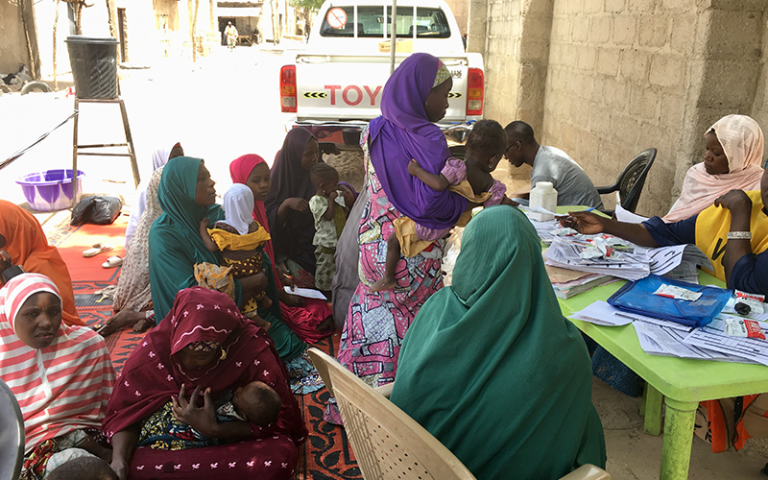Supporting better health for Nigeria during the pandemic and beyond
Experts from the UCL Institute of Global Health are collaborating with Nigerian academics around the globe and local policy makers to reach Nigeria’s goal of delivering better health for all by 2030.

8 January 2021
Nigeria has the largest economy in Africa and yet health outcomes for its large population are poor and investments in healthcare have declined since 2005 to less than 0.5% GDP.
A multidisciplinary group of Nigerian academics, coordinated by the UCL Institute for Global Health (IGH), is working in close collaboration with the heads of key Nigerian health agencies to provide evidence and develop a plan for policy actions under the umbrella of The Lancet Nigeria Commission.
“The commission will provide comprehensive analyses and an implementation plan that will help shape Nigeria’s health agenda for the next decade,” explains Professor Ibrahim Abubakar, Director of UCL IGH, who is leading the commission.
He is working with a team of commissioners from around the world, together with policy shapers and makers in Nigeria. The commission will produce up-to-date reports on Nigeria’s current disease burden and the state of its healthcare systems from different academic perspectives – from epidemiology to sociology.
““The commission will provide comprehensive analyses and an implementation plan that will help shape Nigeria’s health agenda for the next decade.”
‘We will articulate the key challenges and make specific recommendations that will help set an agenda for action over the next ten years,” explains Professor Abubakar, who is an expert in infectious diseases and the impact they have in resource poor settings.
At the start of the coronavirus pandemic, Nigeria had fewer than 400 intensive care beds and 350 ventilators, which limited the country’s ability to mount an effective response.
Professor Abubakar is also part of Nigeria’s Presidential Task Force on COVID-19. He is working with the Nigeria Centre for Disease Control and other local partners to summarise international evidence and best practices, generate and synthesise local data, and present the best evidence to inform policy and action against COVID.
The taskforce is providing weekly reports to the Nigerian government that include disease projections and impacts, using data modelling tools developed at UCL and Imperial College, London.
“Our evidence that is helping to inform local policies and actions and ensure impacts of COVID on maternal and child health outcomes are considered as a part of that response,” Professor Abubakar adds.
 Close
Close


